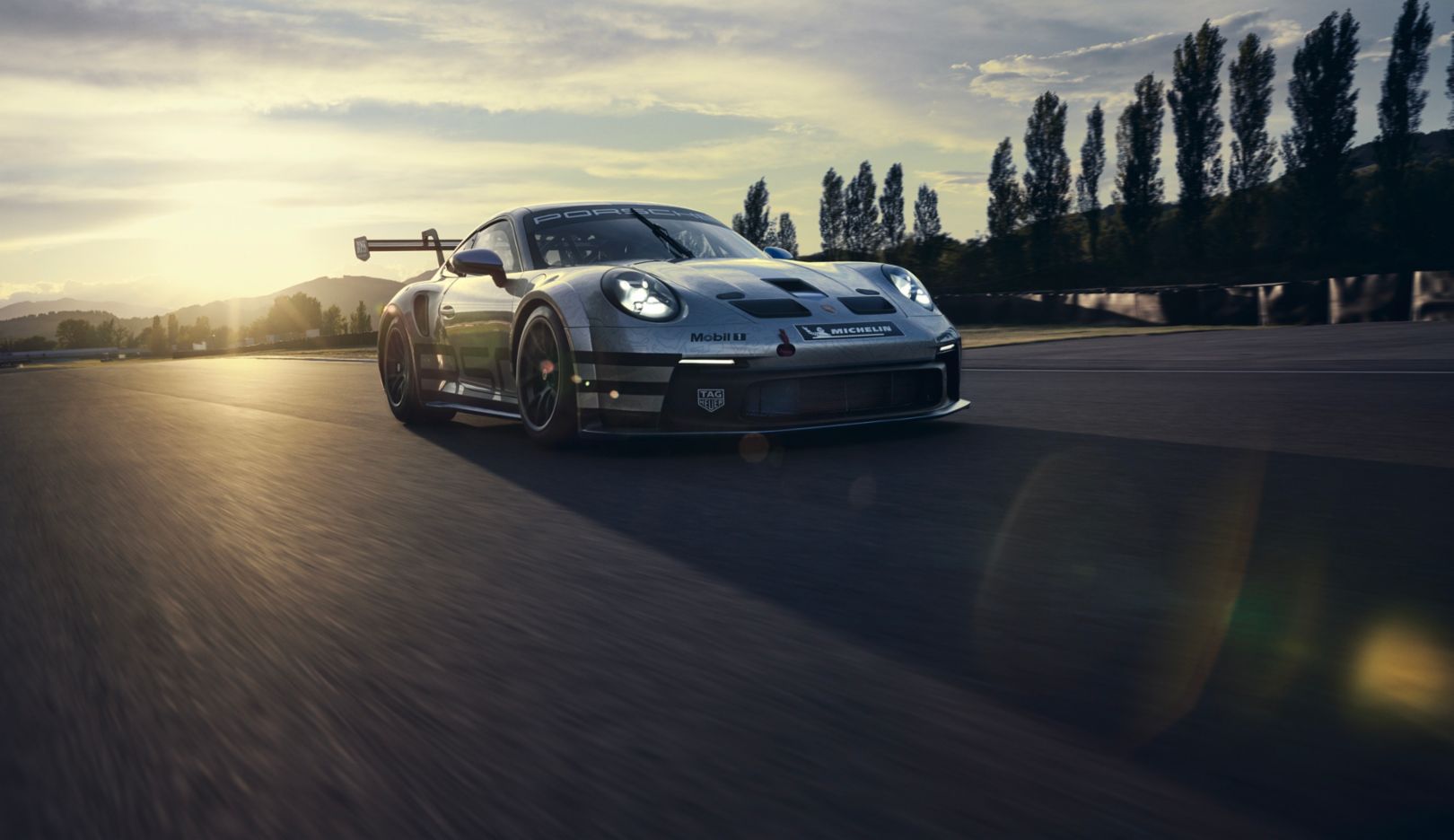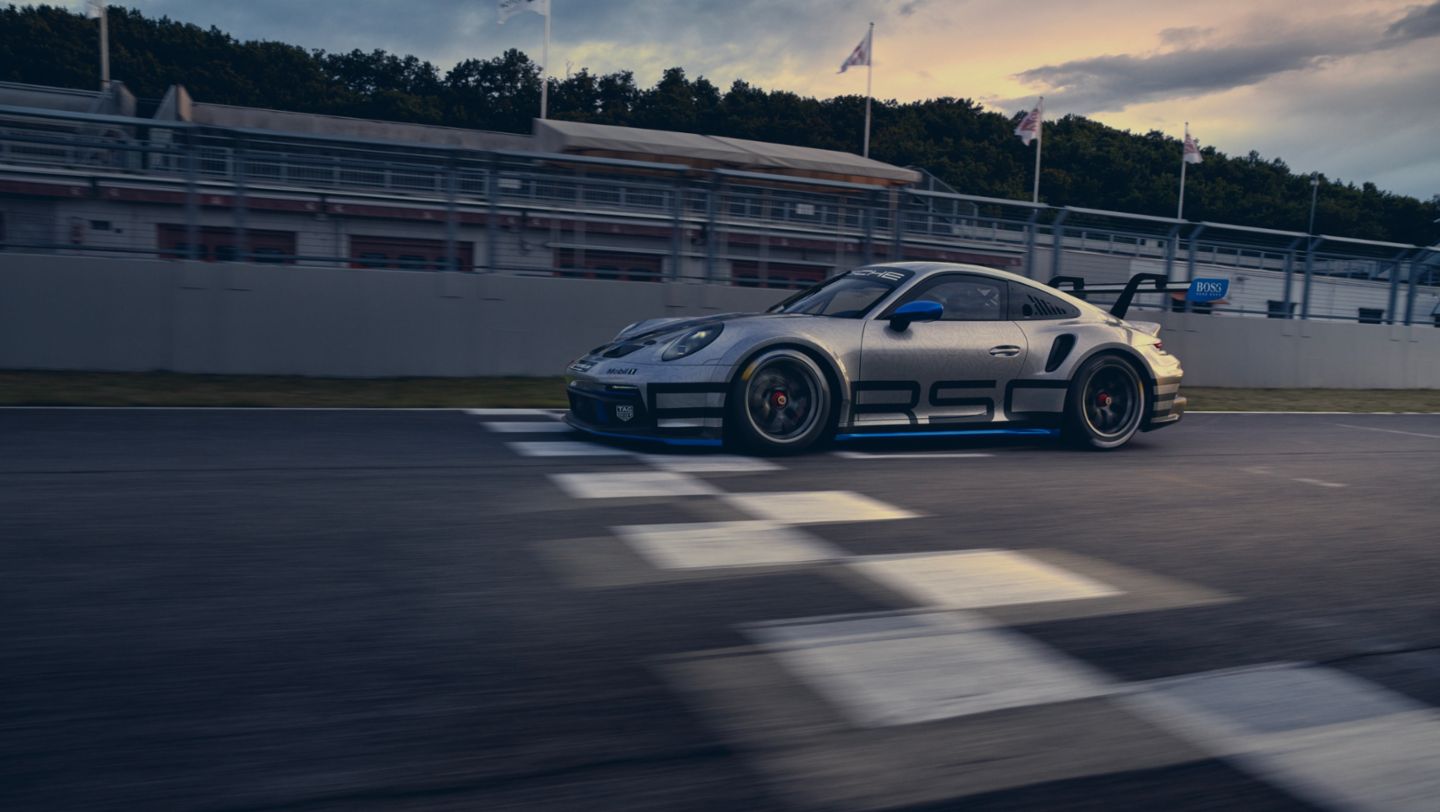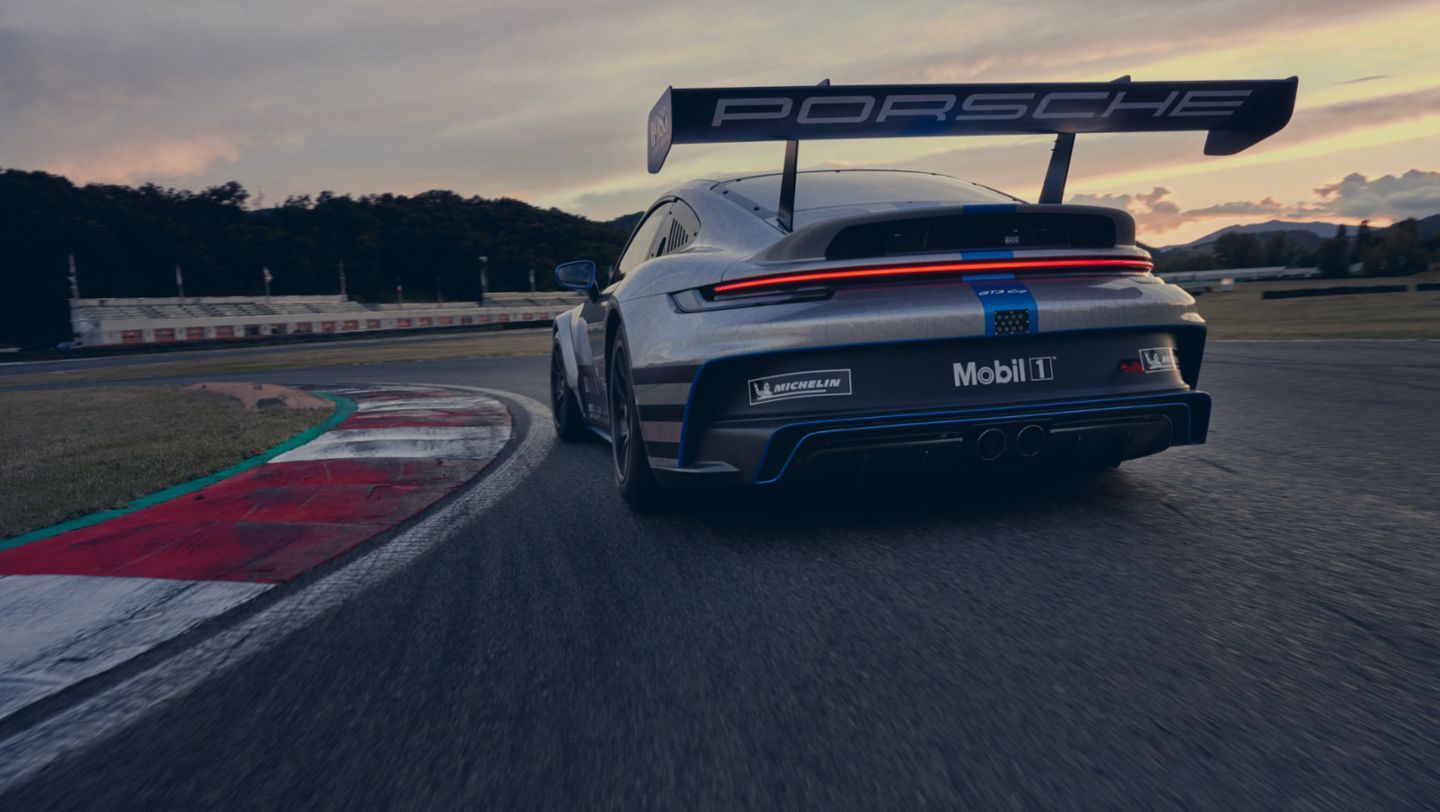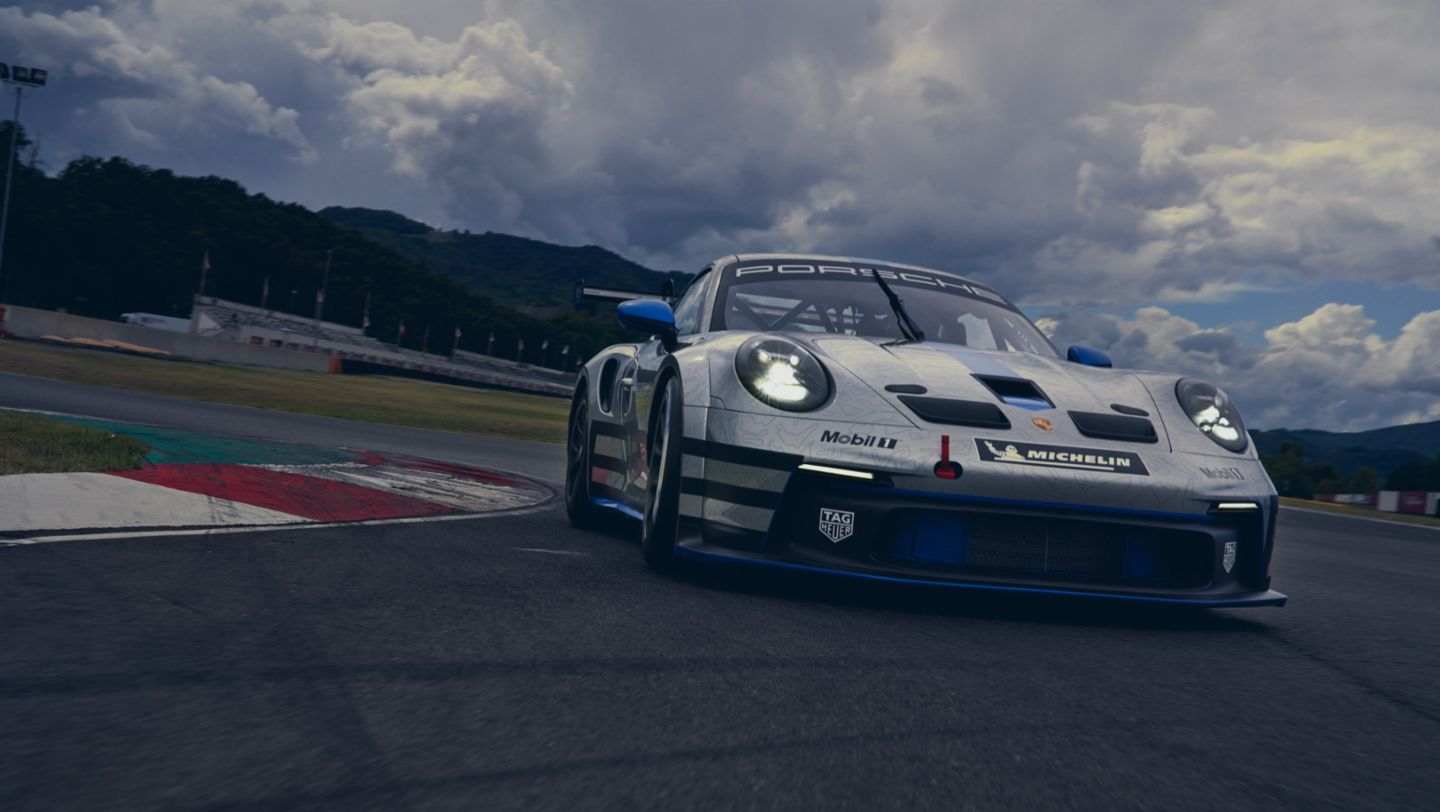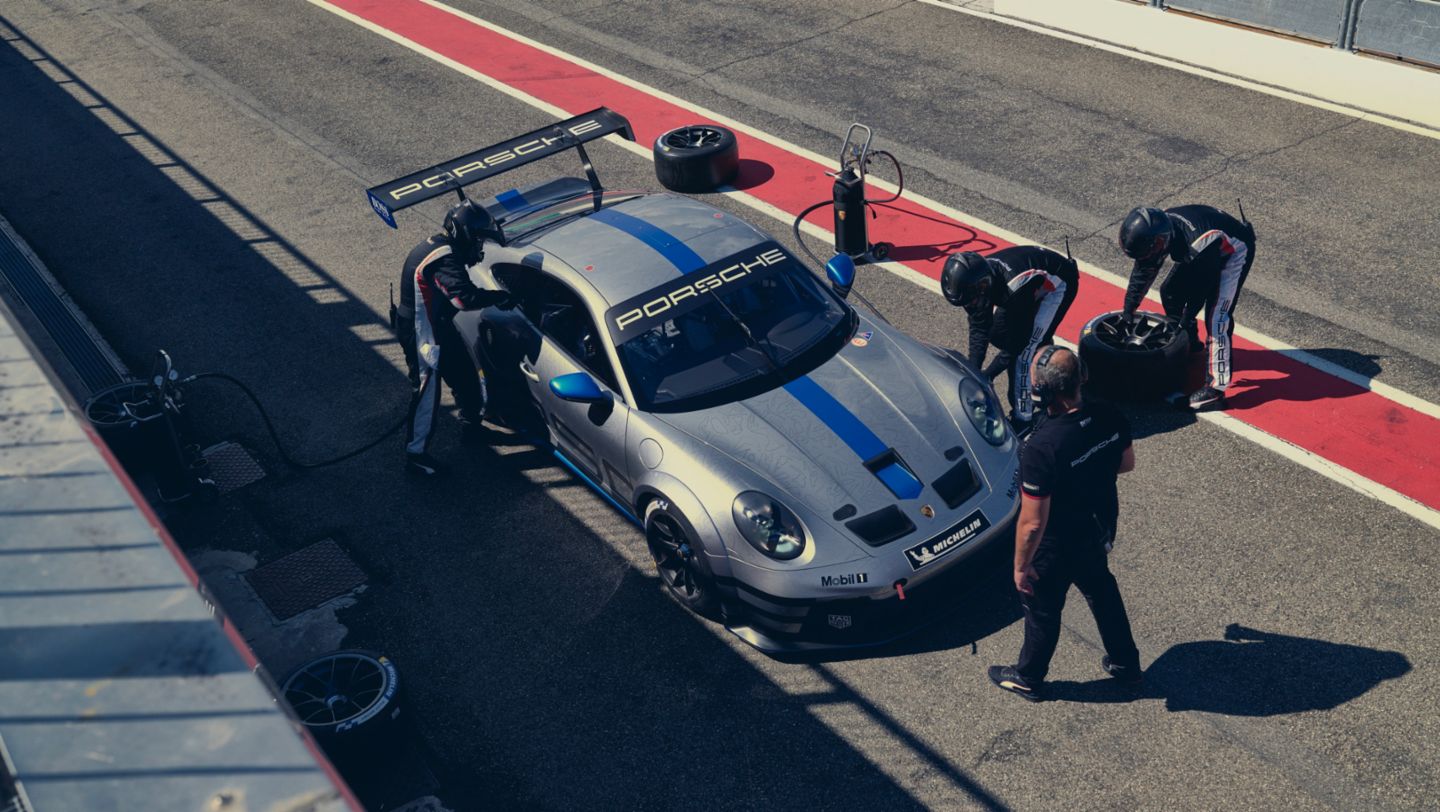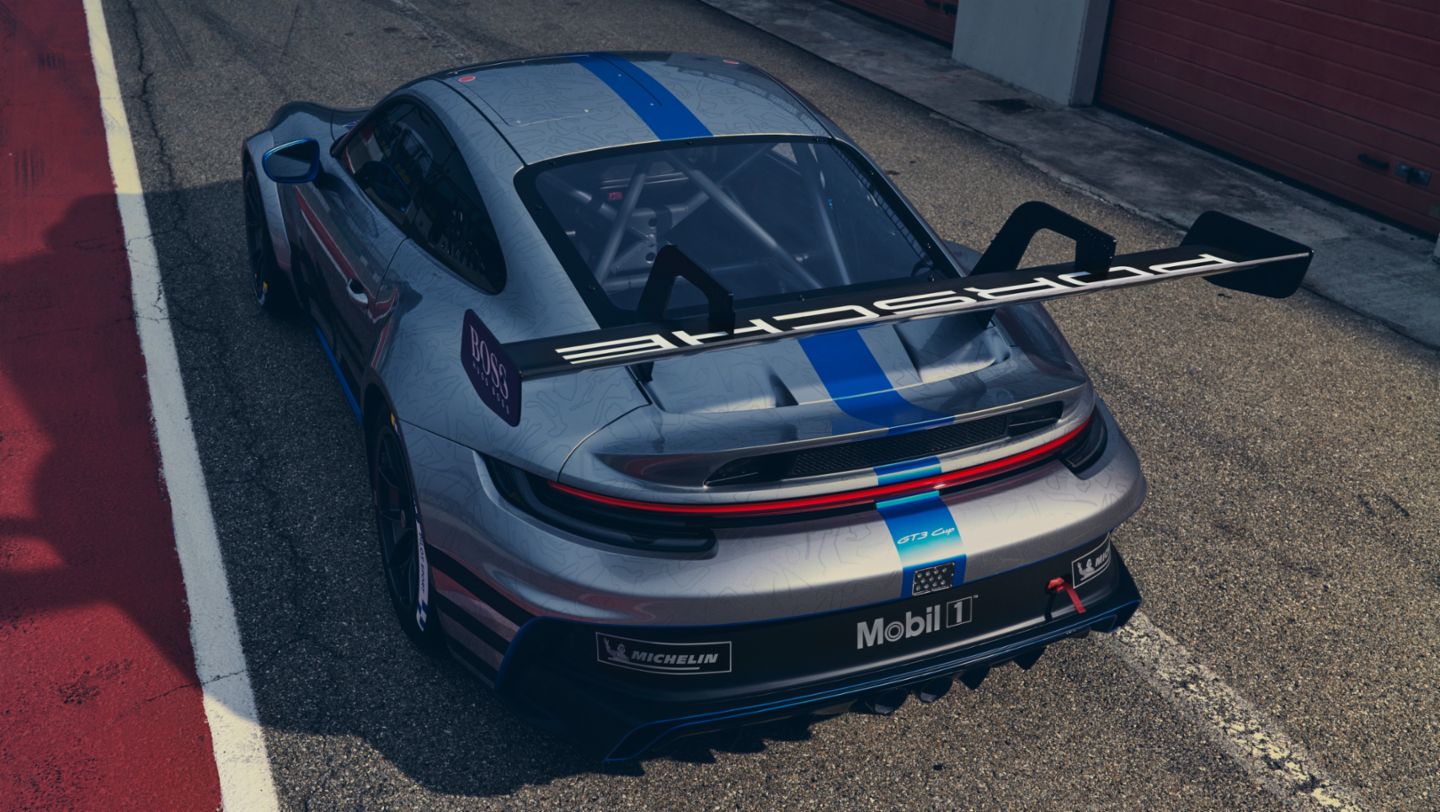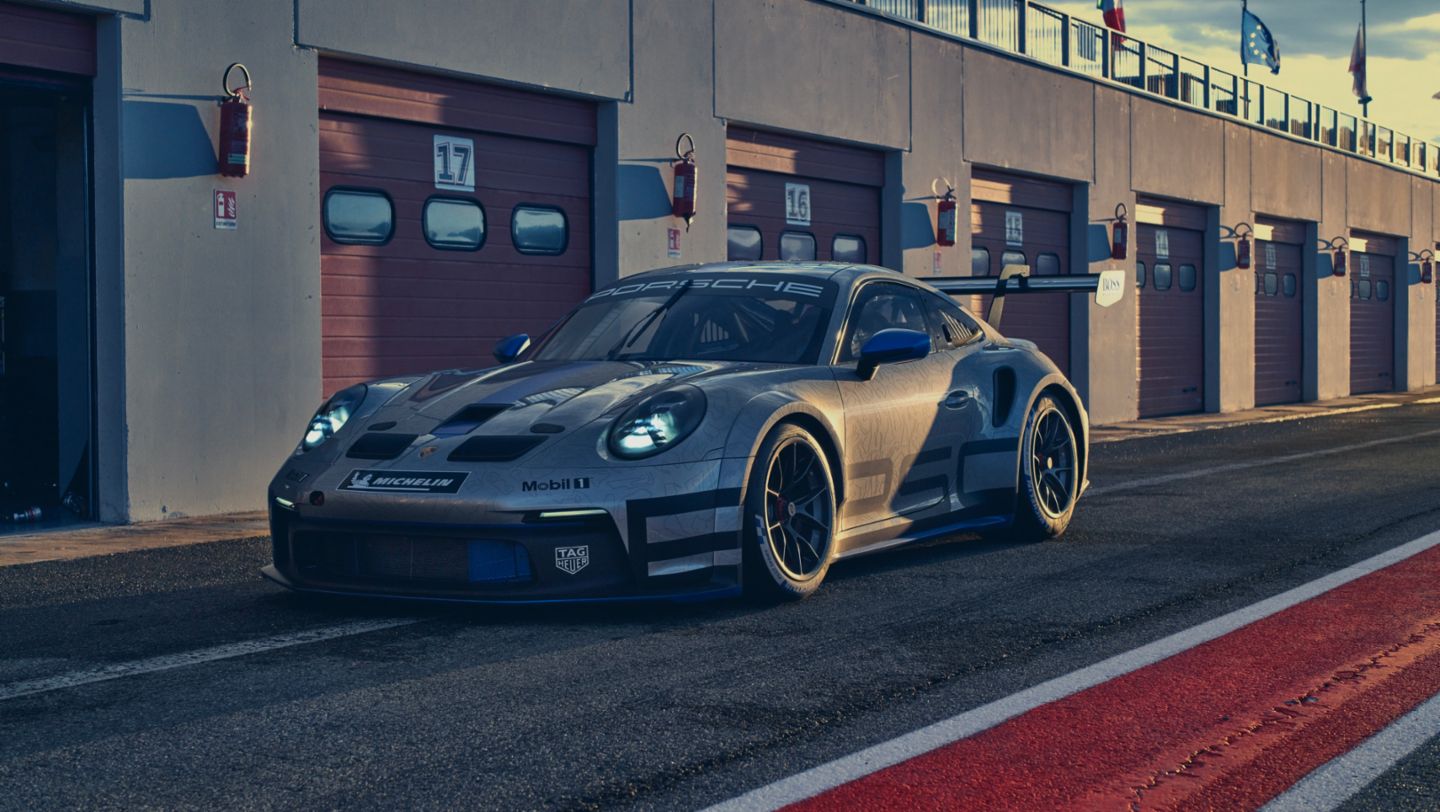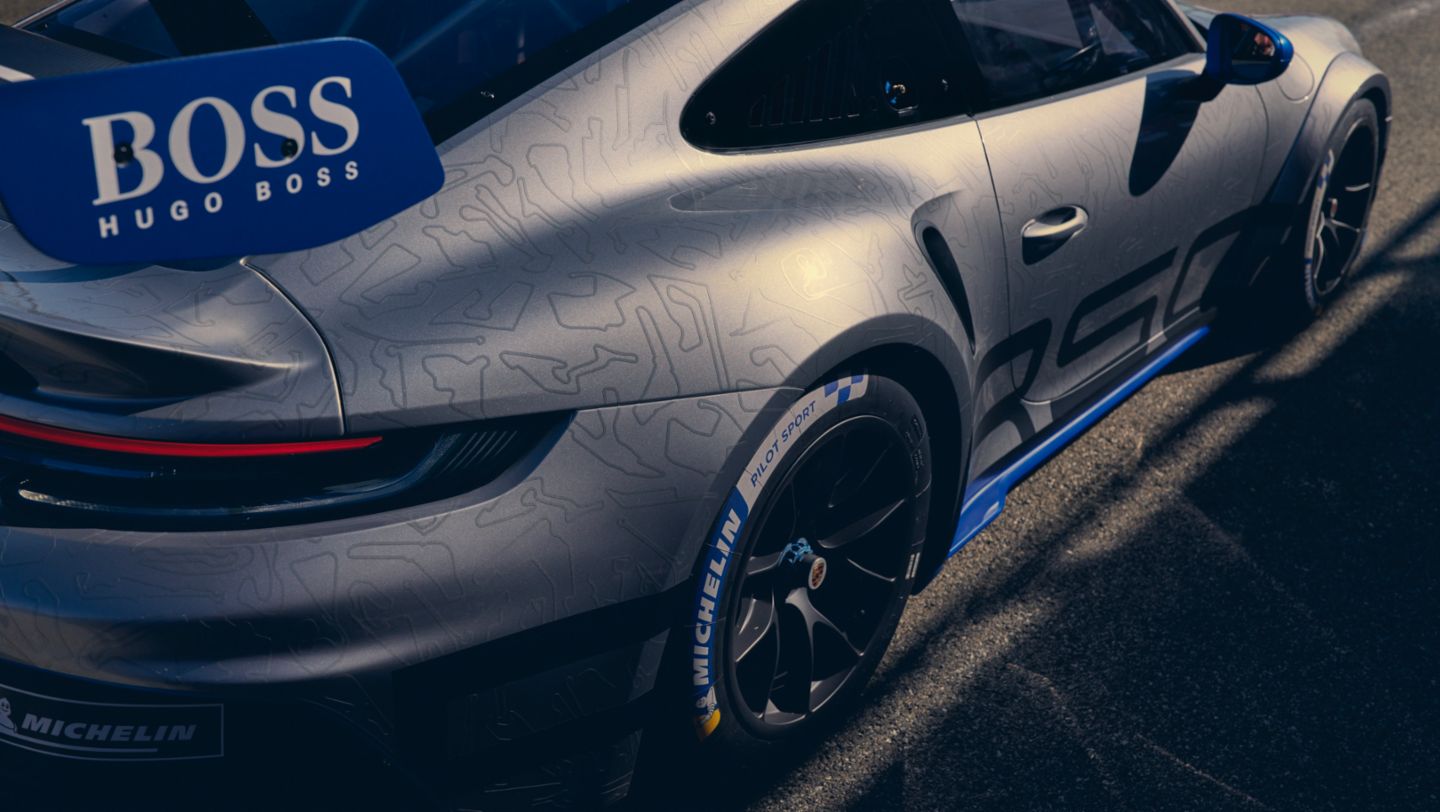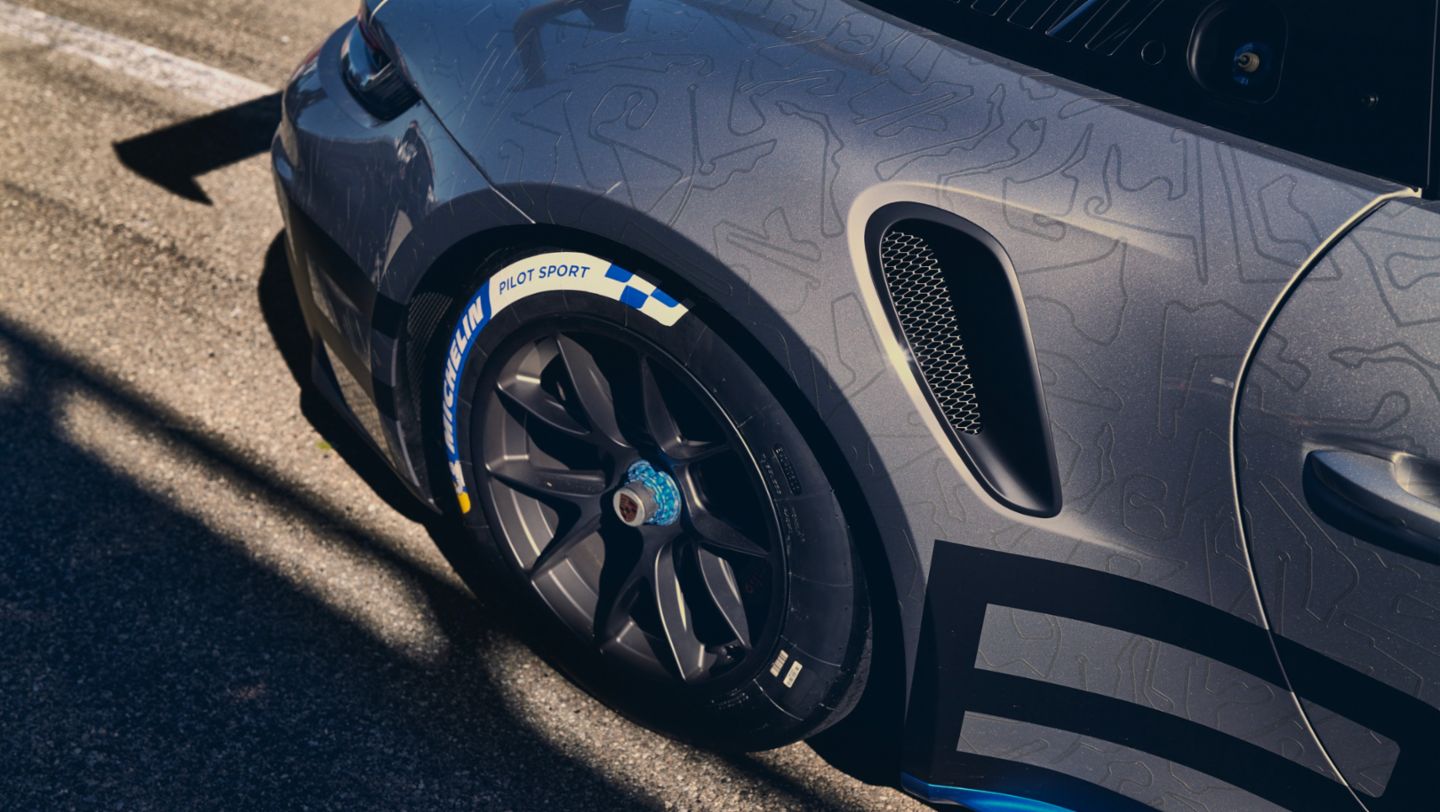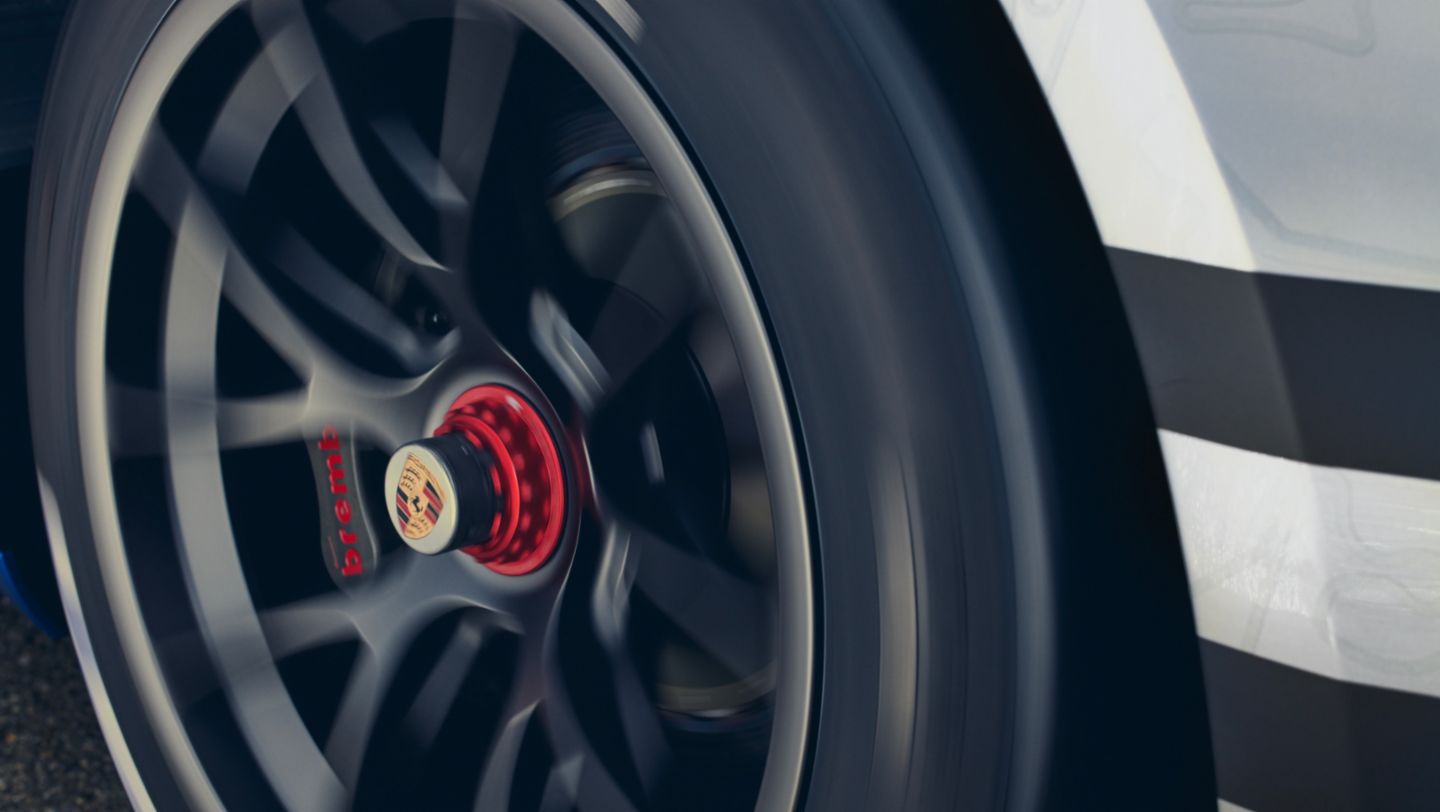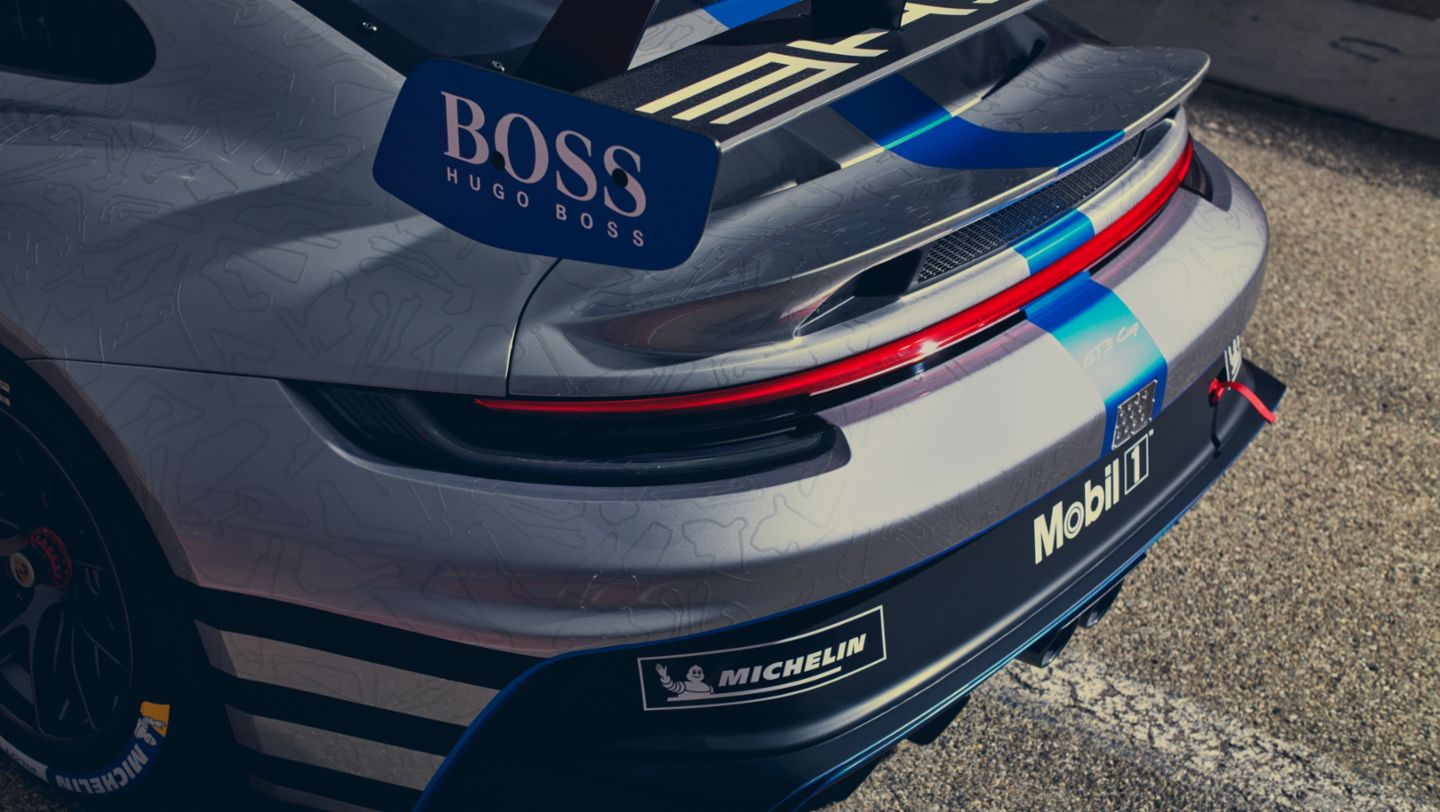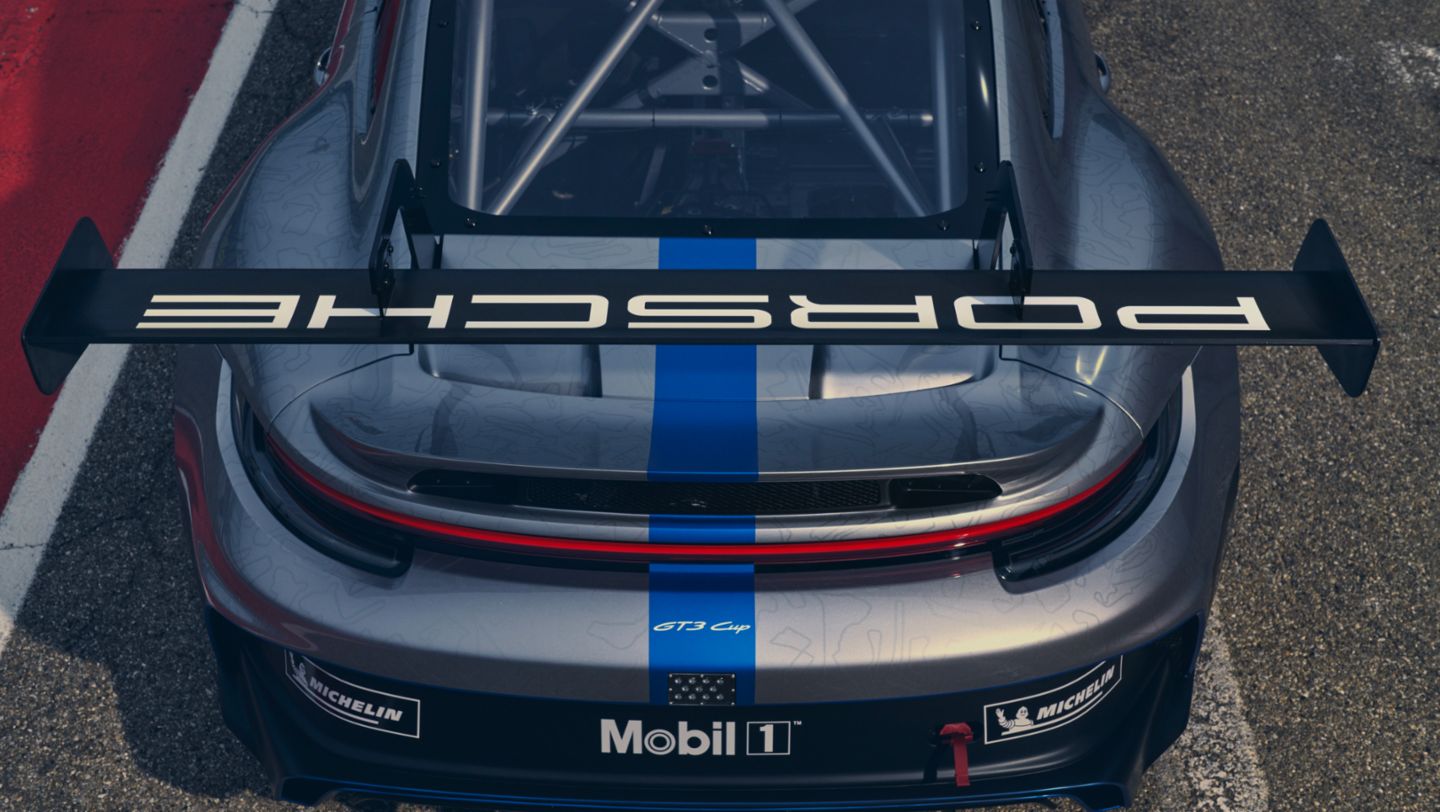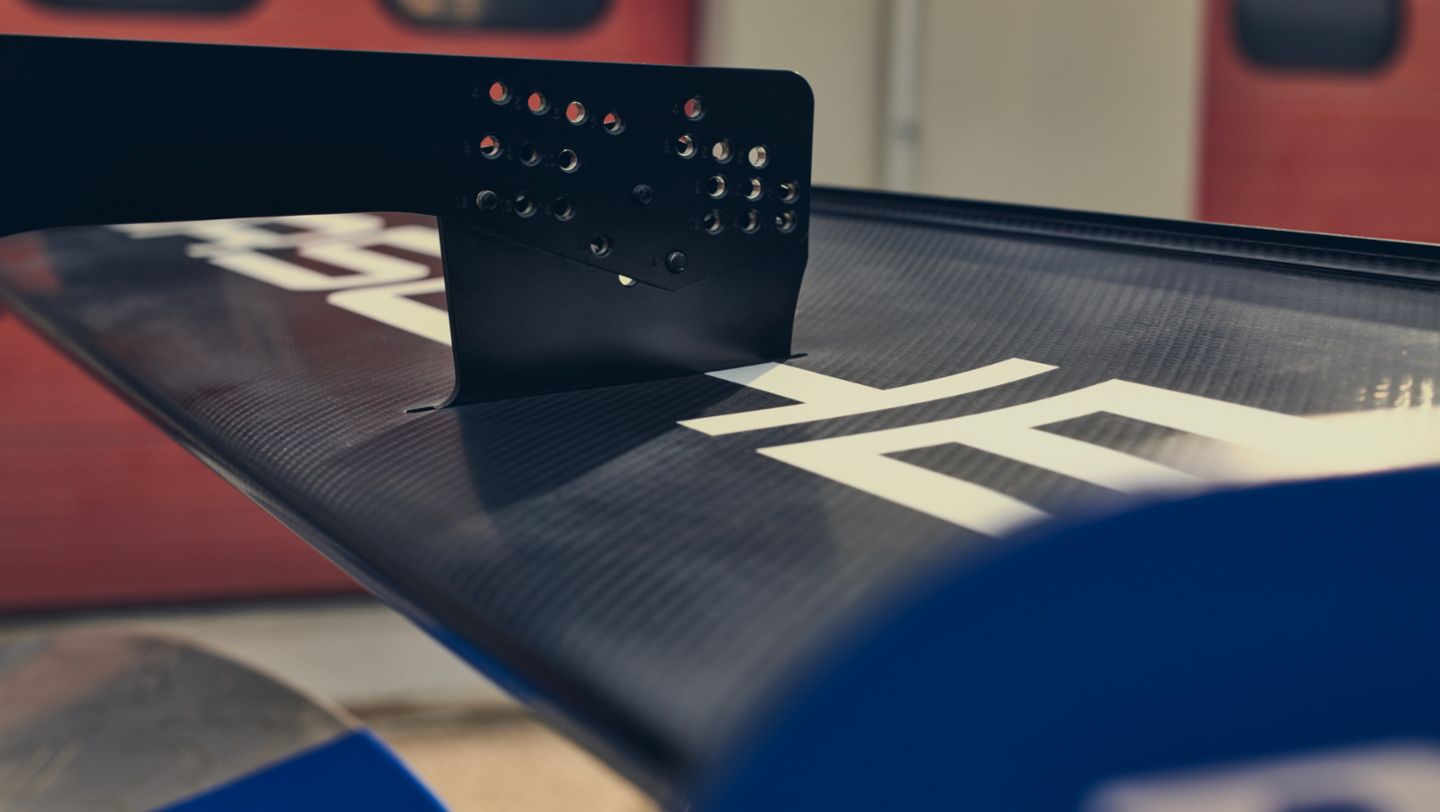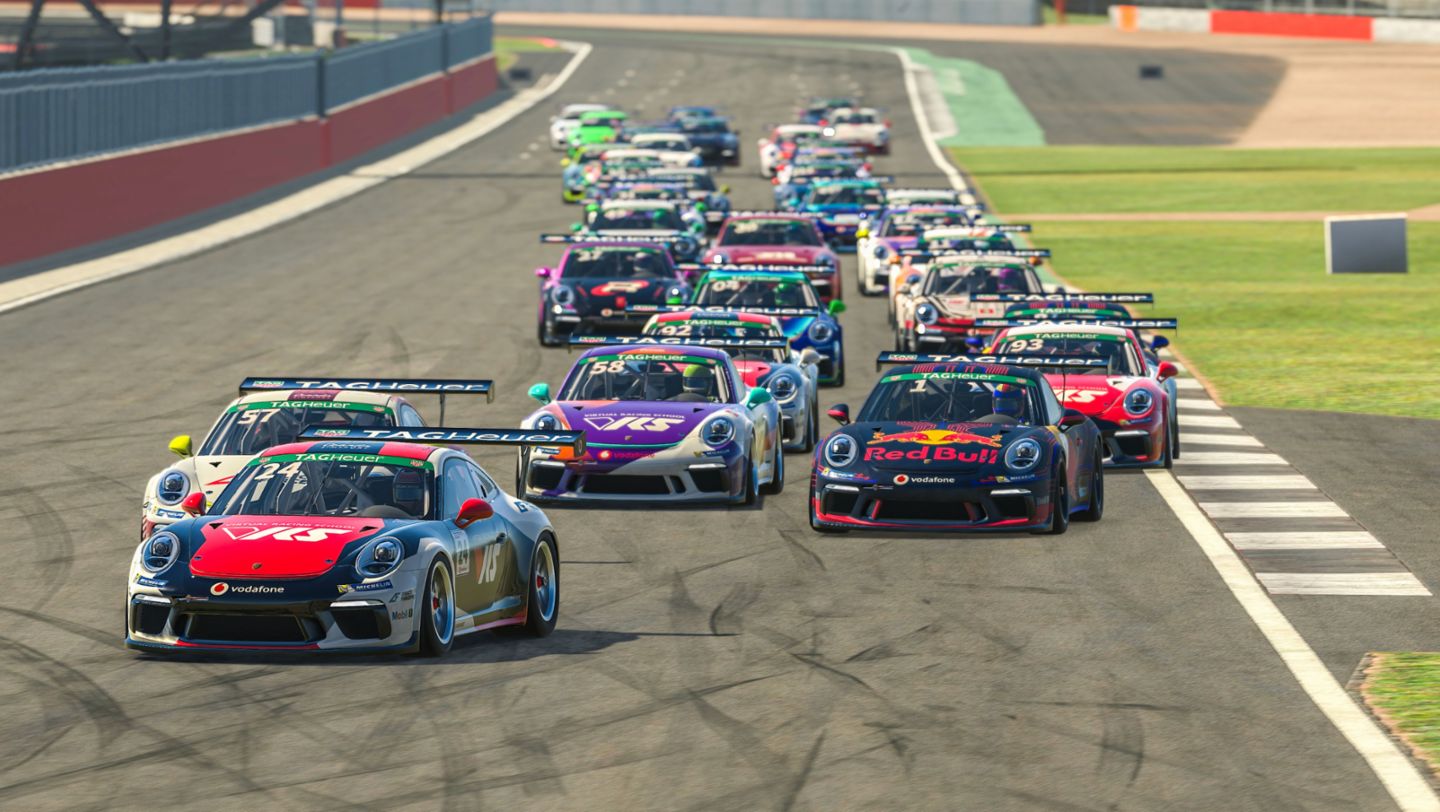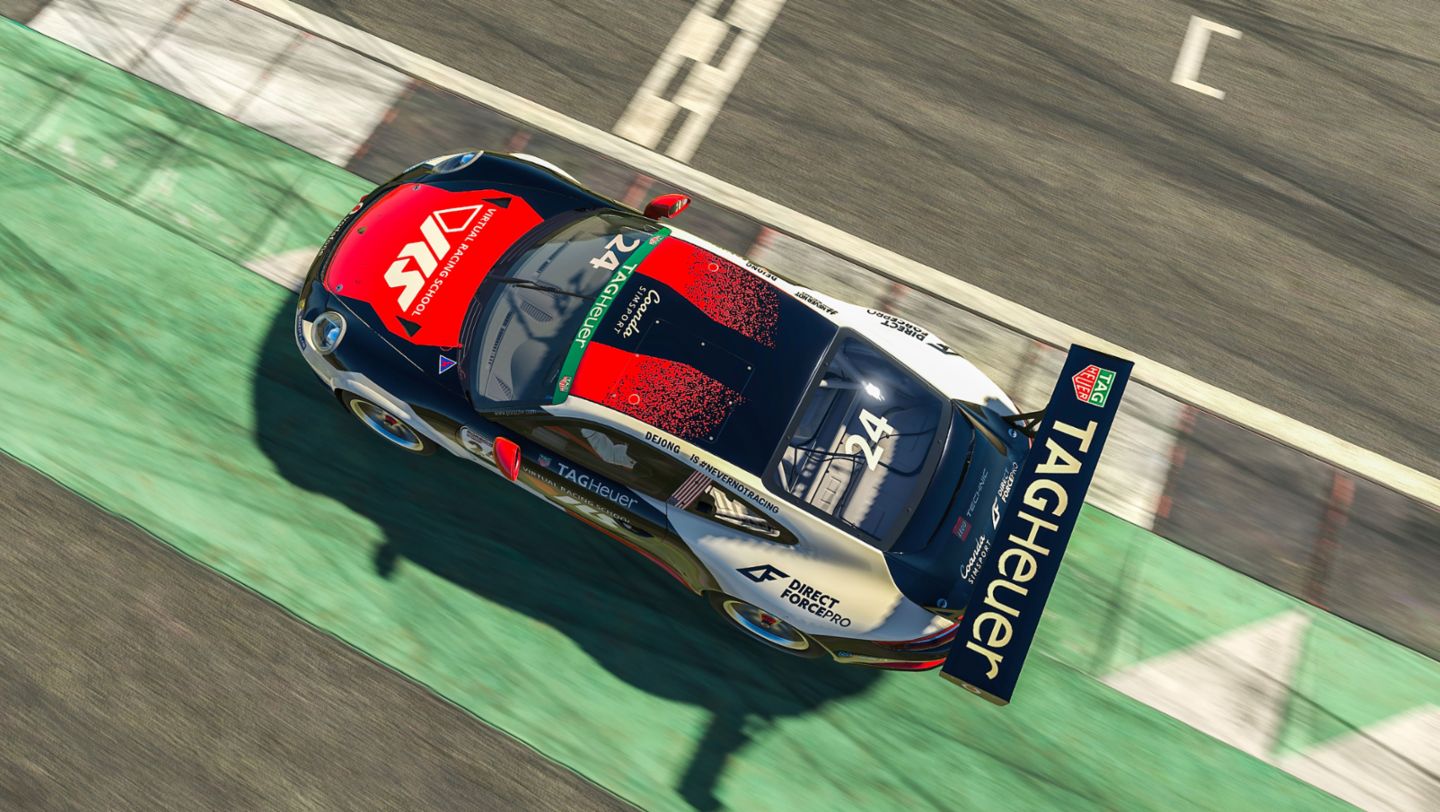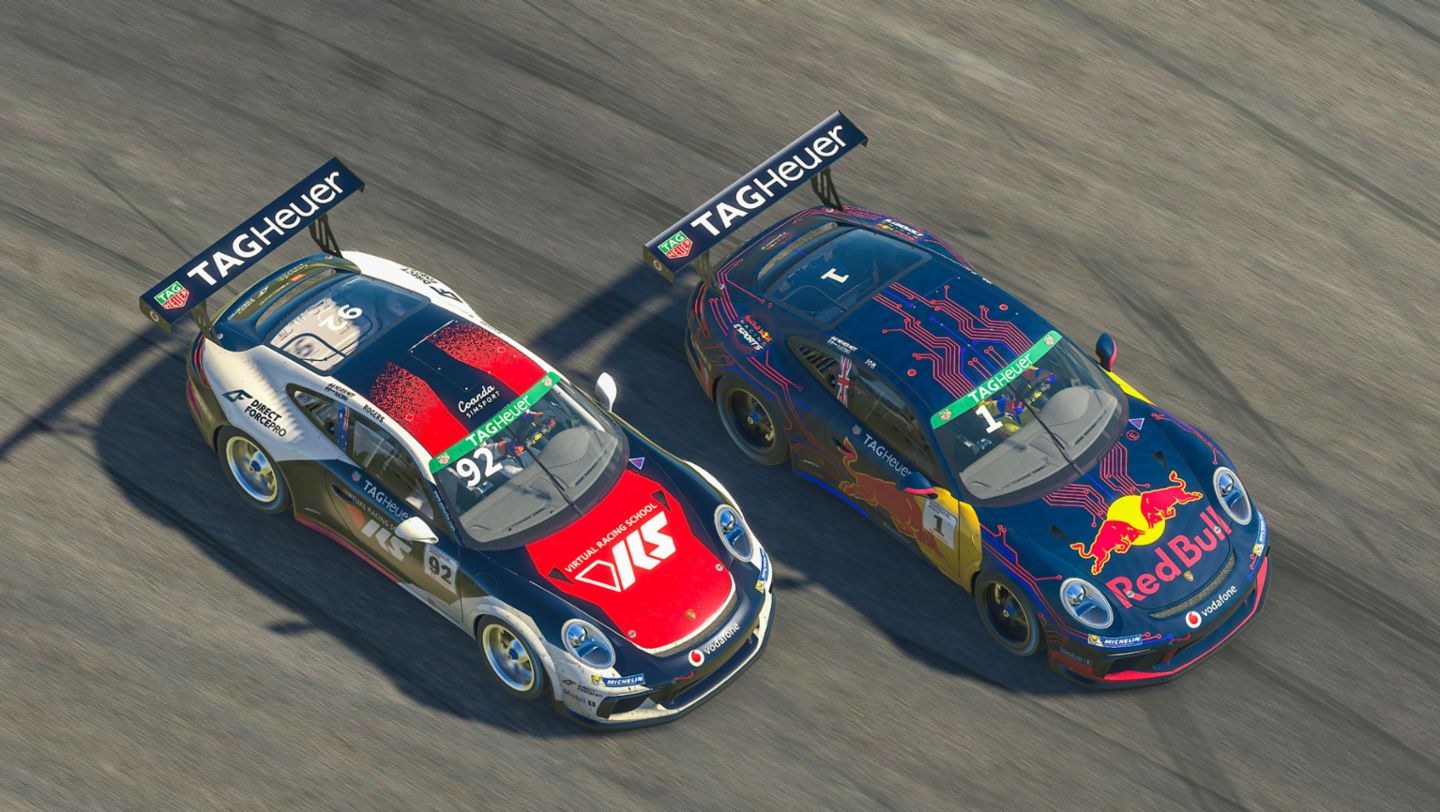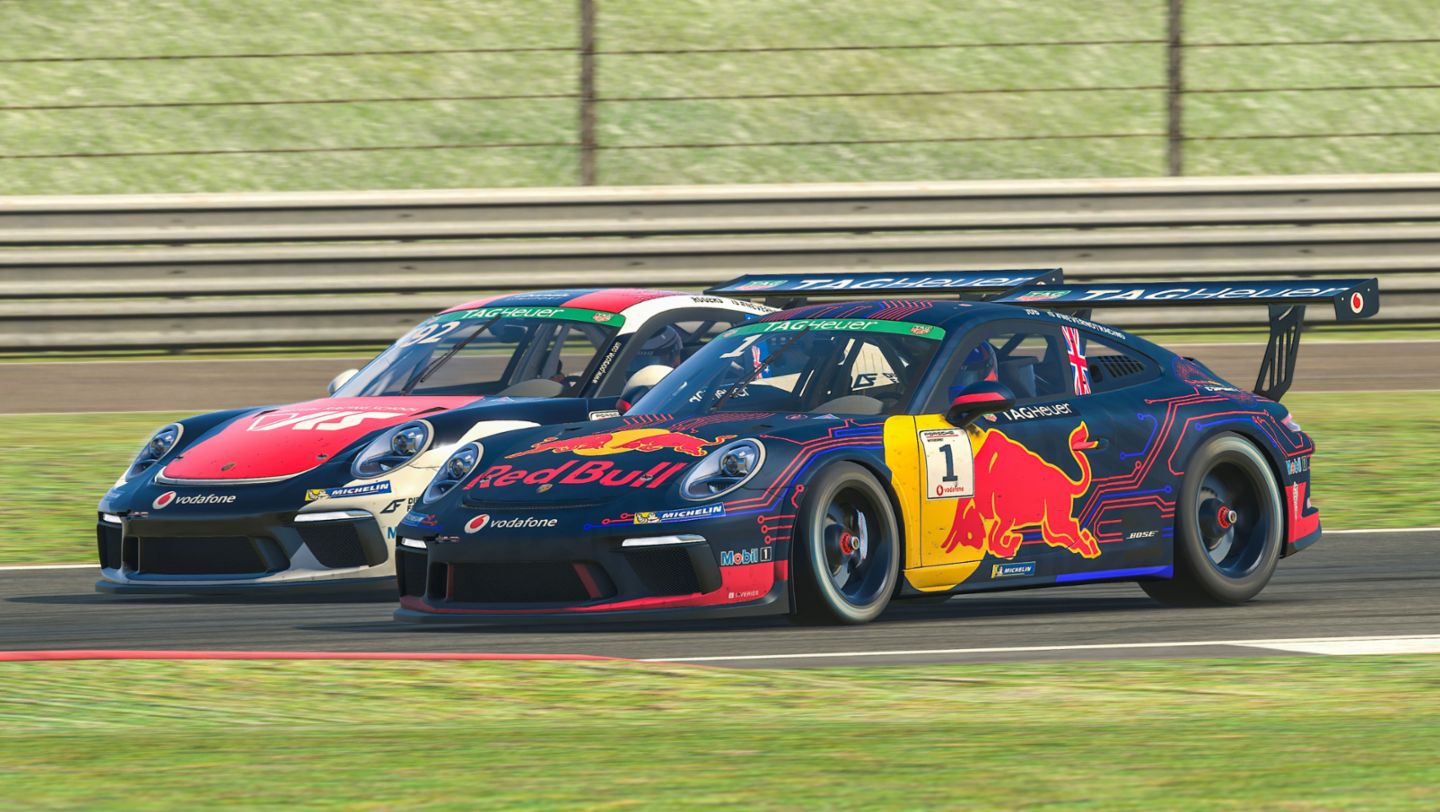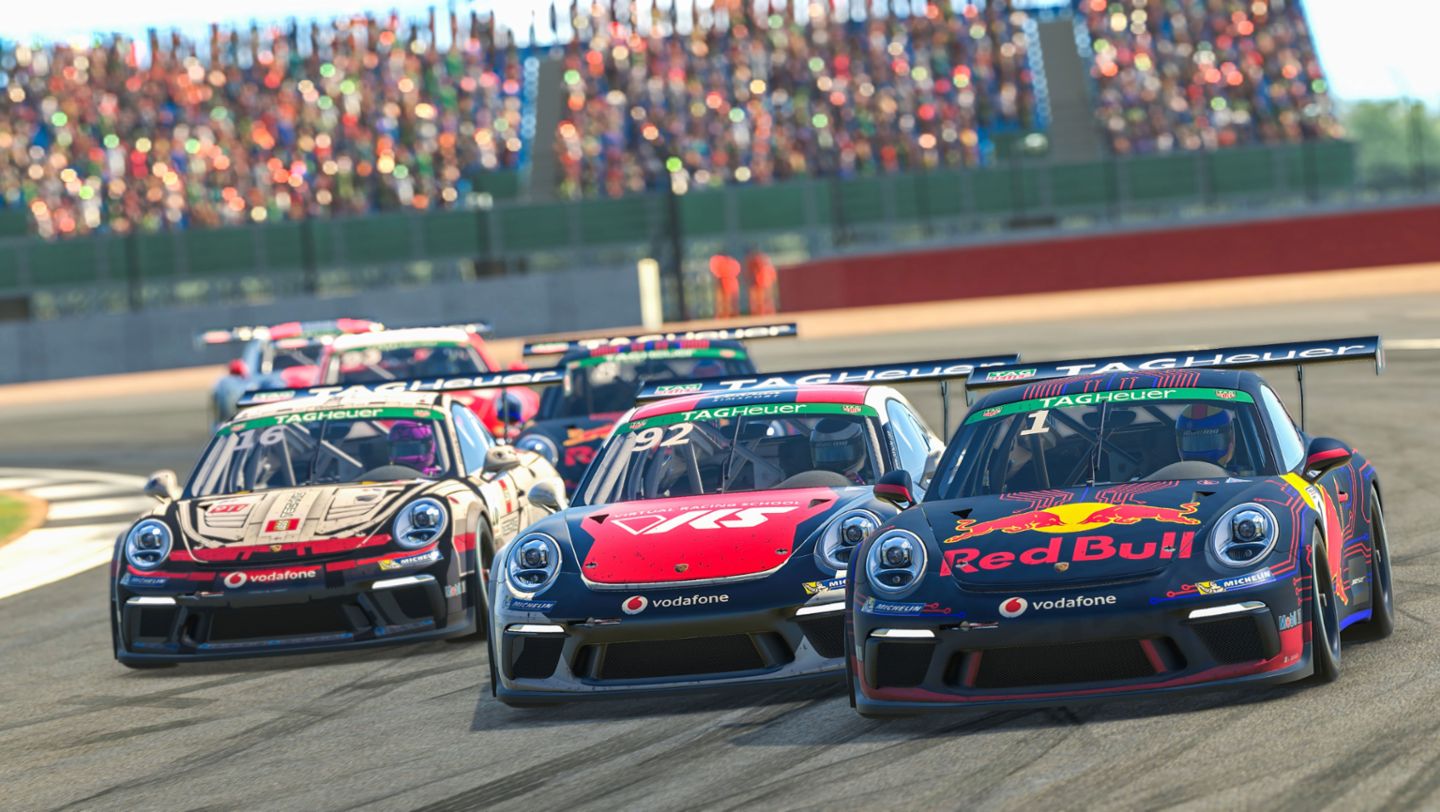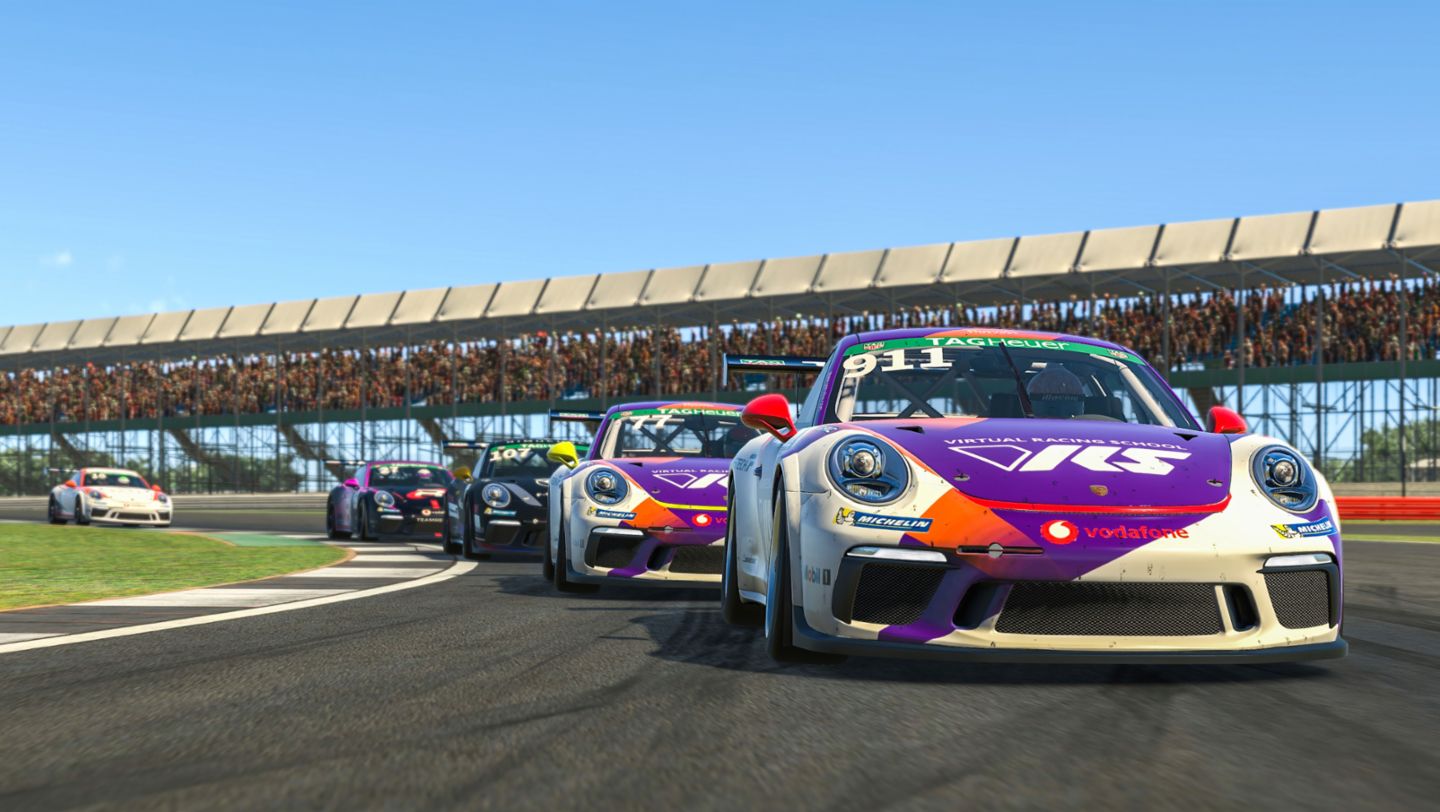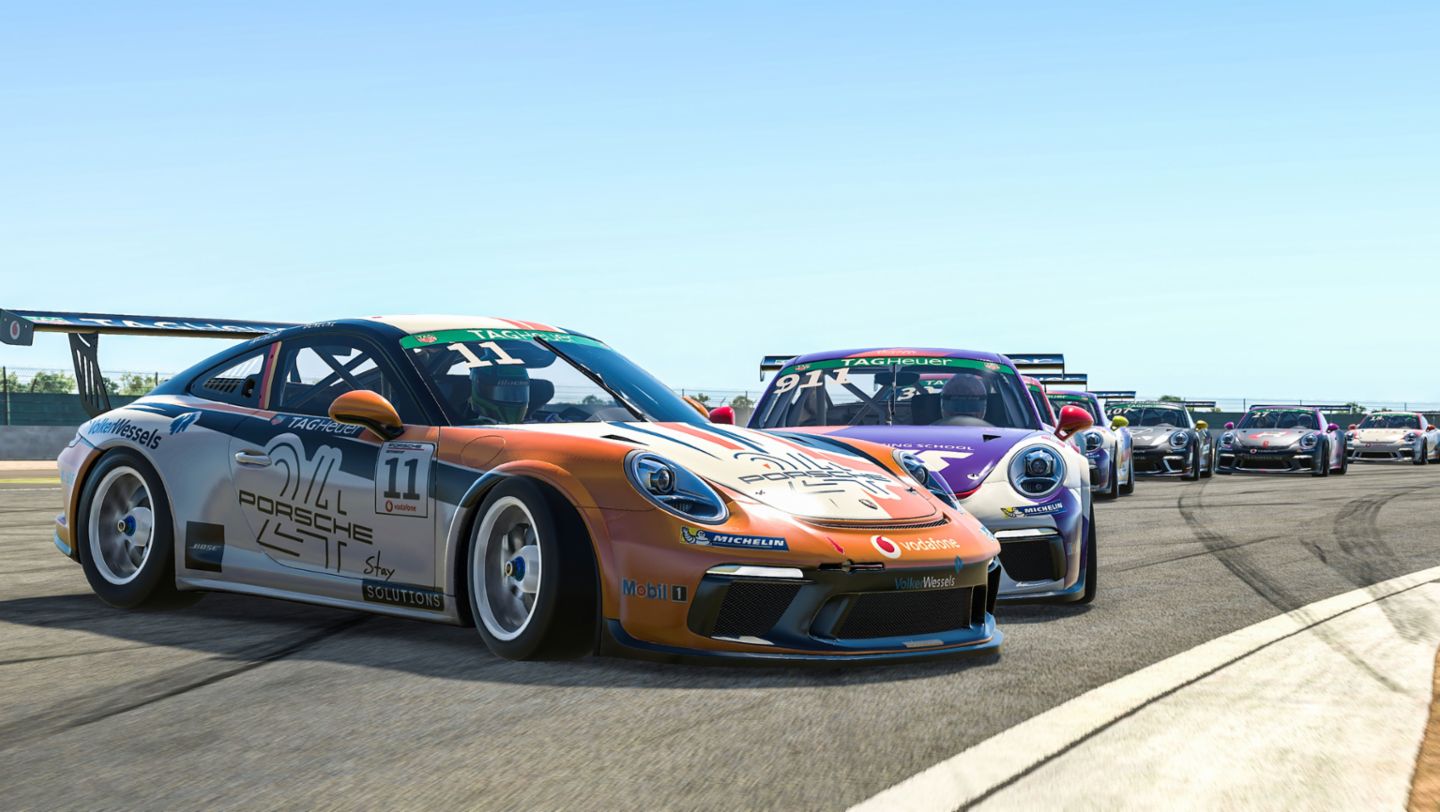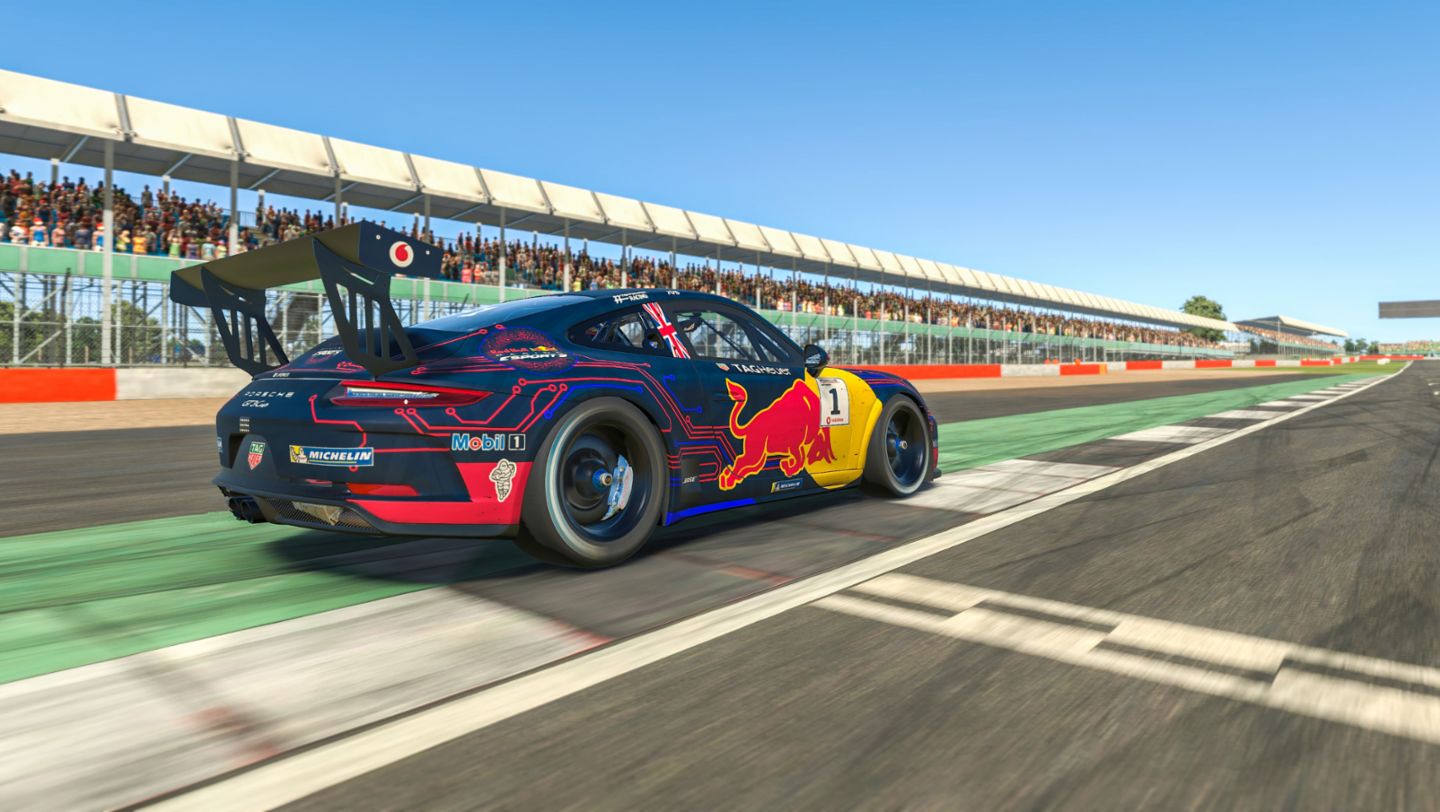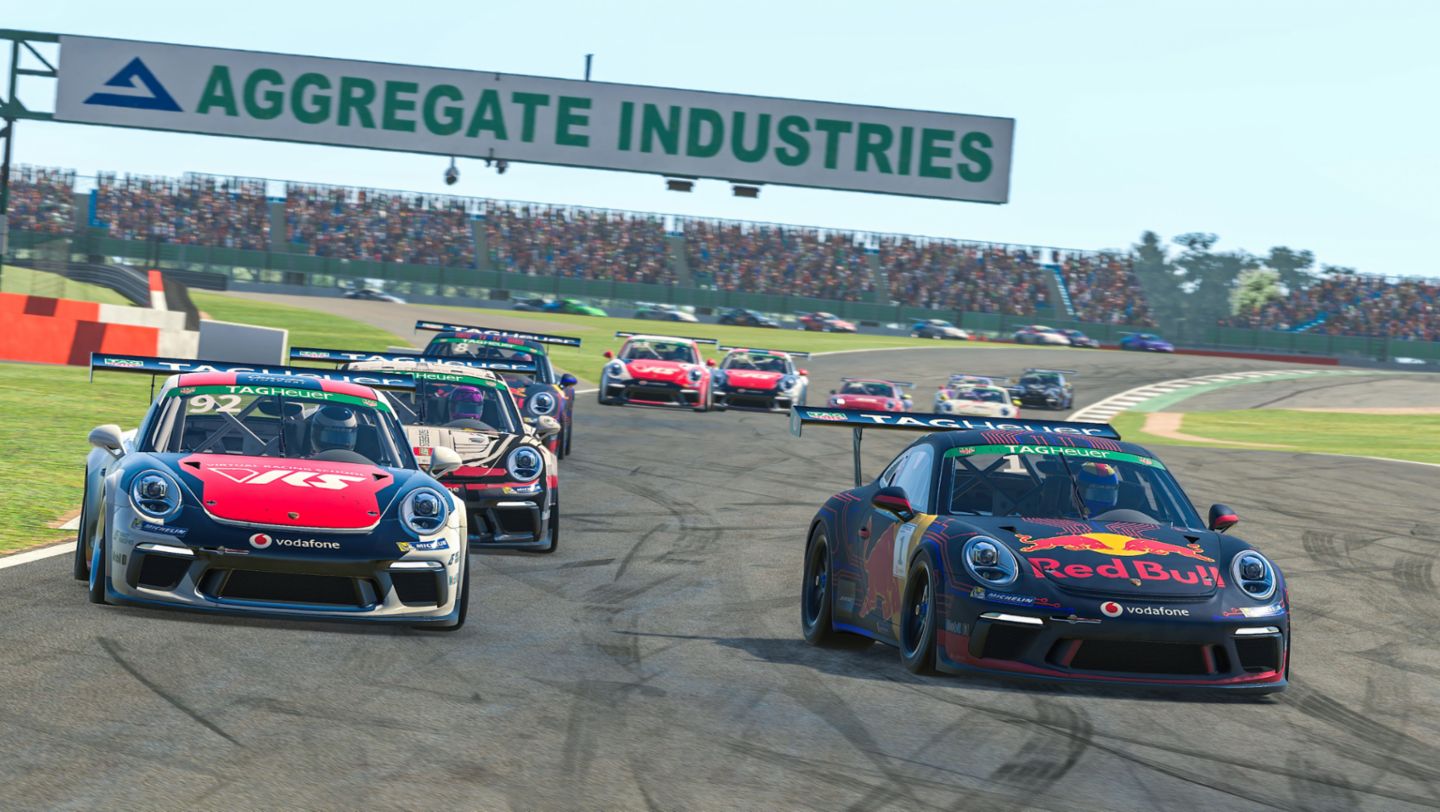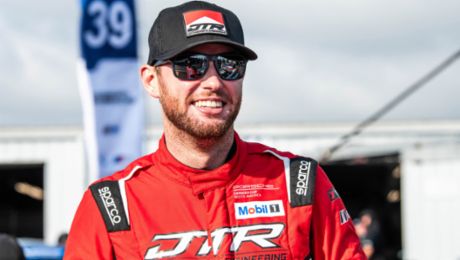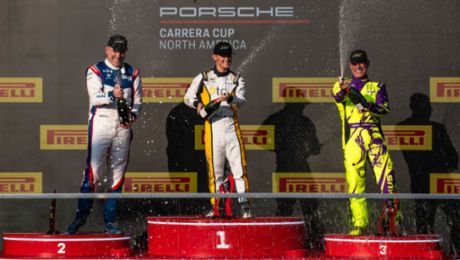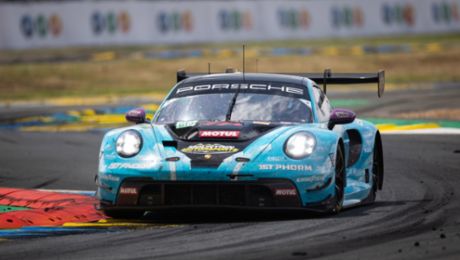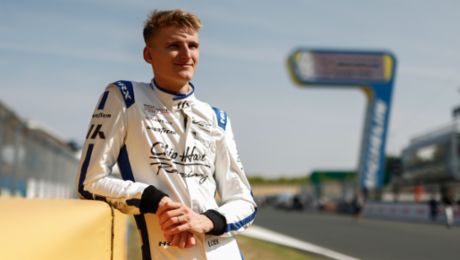The Porsche Carrera Cup North America will be a leader in many ways entering its debut season in 2021. Among the firsts for the entrants into the new championship – the highest of the one-make series on the Porsche Motorsport Pyramid North America – will be the privilege as the earliest to test and race the newest Porsche 911 GT3 Cup competition car worldwide. Porsche will host an open test for all full-season entrants in the series at Sebring International Raceway on March 8 – 9. The private test will include the first 23, 2021 Porsche 911 GT3 Cup race cars produced and delivered worldwide, as well as a limited number of previous generation cars. Following the two-day private event on the 3.74-mile, 17-turn race course in Sebring, Florida, entrants will make the international competition debut for the first race variant of the type 992 generation of the iconic 911 platform on March 17 – 19 during the Mobil 1 Twelve Hours of Sebring weekend.
North America holds the honor of being the first to see the most produced factory race car in the world in Central Florida. It will be followed by its Porsche Mobil 1 Supercup premier March 30 at Zandvoort in The Netherlands. Other Carrera Cups will follow.
The seventh cup-car iteration will carry forward a great legacy. Since its 1990 forerunner, Porsche has built 4,251 units of the globally successful one-make cup racer. Of its immediate predecessor alone, 1,410 cars rolled off the 911 assembly line in Zuffenhausen, Germany: 673 vehicles from the 991.1 generation and 737 from the 2017-launched 991.2 generation.
Producing 510 hp (375 kW), the new-for-2021 machine exceeds the output of its immediate predecessor by approximately 25 horsepower. Moreover, the new GT3 Cup car can run on synthetic fuels, which significantly lowers CO₂ emissions under racing conditions. The completely new Cup 911 race car is expected to cut lap times, depending on the track layout, by an astounding one-percent – an almost unheard of gain made year-to-year. Delivery to teams will begin in February 19 with the first production allocation scheduled to be delivered to North America.
The groundwork for the latest model was laid in 2018. Concrete development began in early 2019. The main development goals of the team led by project manager Jan Feldmann were to further improve performance, achieve a more aggressive design and greater durability with less outlay in terms of time and maintenance. The result is reflected in many aspects of the new racing vehicle, which, like its predecessor, is built on the production line in Stuttgart-Zuffenhausen alongside the 911 road models.
One of the most striking features of the new 911 GT3 Cup is its optimized aerodynamics and the overall more muscular appearance. This is partly thanks to the wide, turbo-spec lightweight body that is being used for the first time in the Cup car. This improved aerodynamic efficiency ensures more stable handling, particularly in high-speed corners.
Optional vehicle functions such as ABS or traction control are already stored in the car’s onboard ECU. They can be activated via a digital code. In the Porsche Carrera Cup North America as well as the Porsche Mobil 1 Supercup, the majority of these driving aids are switched off in the professional classes. The focus of Carrera Cup and Supercup is on the talent of the drivers not the race car.
While the rear axle in the new Cup car essentially remains unchanged compared to the production 911 model, the front wheels are now controlled by a double wishbone suspension and Uniball bearings – like in the Porsche 911 RSR, the top racing model in the Porsche lineup. Through this, the shock absorbers/dampers are no longer exposed to lateral forces, only axial forces. This ensures more precise turn-in behavior and gives the driver a better feeling for the front axle. The shock absorbers have also inherited the cutting-edge valve technology from the Porsche 919 Hybrid LMP race car and 911 RSR. Fully electro-mechanical power steering has been introduced into the Porsche 911 GT3 Cup for the first time this year as well. While the car remains true to its Porsche roots in feel and performance, drivers who have experienced even the most recent generation of “Cup car” will have to adjust to the new, more precise handling of the newest generation. This puts a premium on the first test session at the fast, and bumpy, central Florida race course.
In terms of the engine, the 911 GT3 Cup remains true to the naturally-aspirated principle. In its racing version, the four-liter, water-cooled flat-six engine develops 510 hp (375 kW). The engine is connected to the sequential, six-speed gearbox with gear changes being made via a paddle shift on the steering wheel.
Entrants will take delivery of their new Porsche 911 GT3 Cup race cars beginning February 19. To help maintain a level playing field for all customers, regardless of their designated delivery slot, teams will not be allowed to test the cars on track prior to the Porsche Motorsport North America-managed Sebring test on March 8. To learn more, please visit www.PorscheCarreraCup.us .
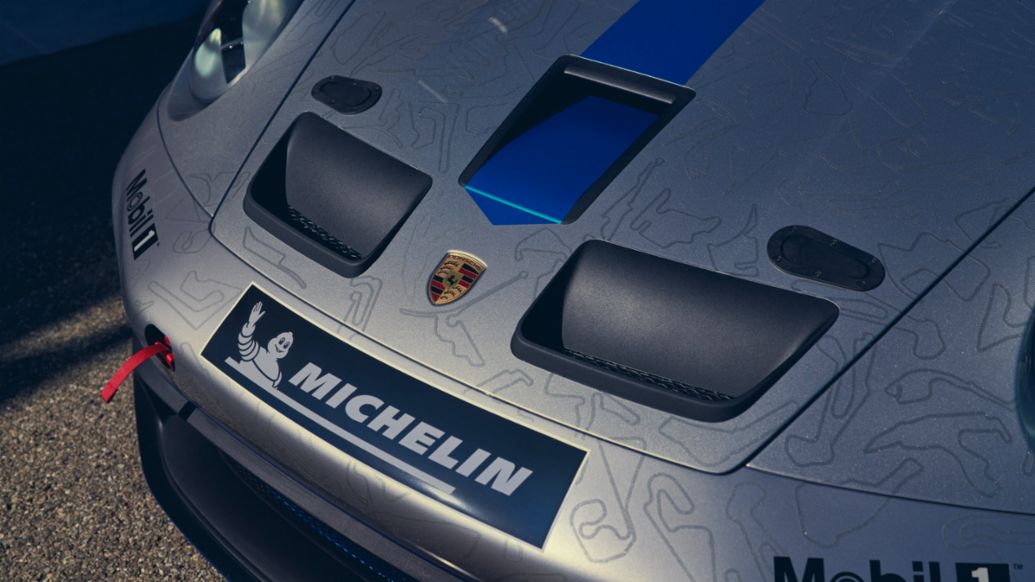
Brian Blocker, Series Director, Porsche Carrera Cup North America.
“Being able to introduce the new Porsche 911 GT3 Cup race car in our own debut as Porsche Carrera Cup North America is a great honor. It is among the first of many key elements that makes Carrera Cup special for our customers here. While we will have multiple unique details which set the Carrera Cup North America apart, like a bespoke paddock experience and Michelin Pilot race tires, the most obvious and quickly recognizable to the fans will be latest and greatest Porsche 911 GT3 Cup race car. Not only is this special on this continent, but it is also special worldwide. People will be able to watch the future of Porsche one-make racing for the first time at our series’ debut at Sebring on March 17 – 19.”
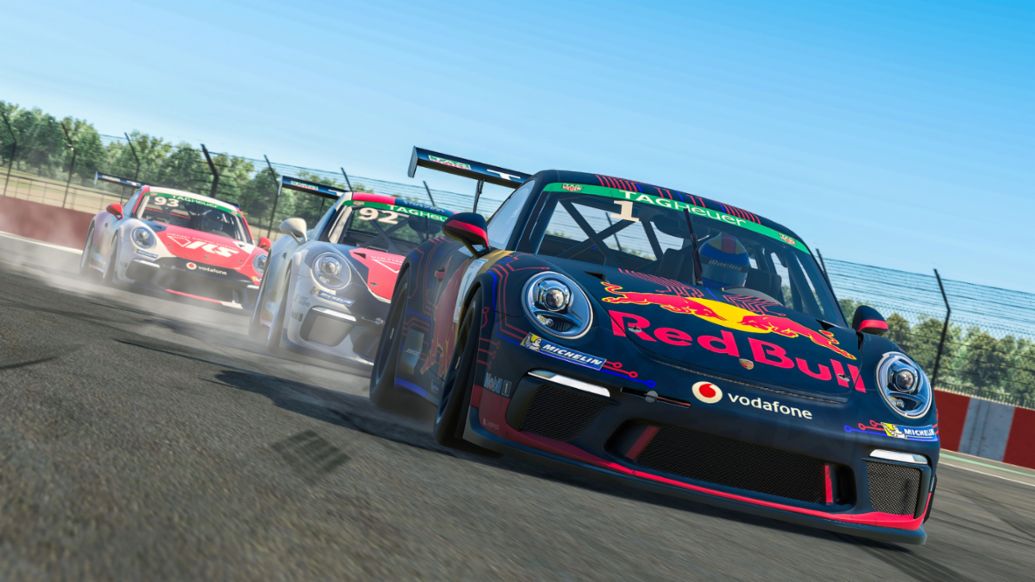
Esports Excitement. Sebastian Job Wins Digital Nail-Biter with Joshua Rogers.
Sebastian Job is back in the fight for the Porsche TAG Heuer Esports Supercup (PESC) title. At round four of the season run on the iRacing simulation platform, the British sim racer won the main event on Saturday, February 6. After securing fourth-place in the previous sprint race, the Red Bull Racing Esports driver treated viewers to gripping duels over multiple laps at his home event at the virtual rendition of the legendary Silverstone Circuit in the United Kingdom. With his digital Porsche 911 GT3 Cup race car, the defending champion maintained the upper hand against his attacking archrival Joshua Rogers. Clinching two second-place finishes, the Australian, who drives for the Virtual Racing School team, still managed to extend his lead in the driver standings over his teammate Mitchell deJong (Temecula, California).
DeJong was quickest in simulator series’ qualifying session earlier in the day for the first time this season. The American started the seven-lap sprint from pole position and promptly led the field at the start. Rogers, starting further back in the top-five was able to overtake multiple positions and pressure the popular Californian. DeJong, however, was beyond reach earning the victory with Rogers settling for second-place. Ayhancan Güven (Turkey), the sole Porsche Junior of 2021, battled his way up the order from position 23 to eleventh at the checkered flag.
In the main event, with the top-eight starting in reverse order on the grid, the championship leader saved his final push until the last lap. When Job slipped briefly in the “Chapel” corner, it looked like a sure change at the top – however, the reigning champion held on to his lead and clinched his second win of the season. Rogers finished in second-place, Bakkum third and Carroll in fourth-place. DeJong would earn a sixth-place result while Kevin Ellis Jr. (Great Britain) driving for United States-based Rahal Letterman Lanigan Esports took the checkered flag in seventh-place. Porsche Junior Güven, who will contend the real-life Porsche Mobil1 Supercup series with the new Porsche 911 GT3 Cup race car, lost a top-ten result in the final lap and was ultimately flagged-off in position 29.
With two second-places to his credit, Joshua Rogers has extended his championship lead over Mitchell deJong. The title defender Sebastian Job moves up to third-place. The next round of the Porsche TAG Heuer Esports will be contested on the virtual Michelin Raceway Road Atlanta on February 20.
